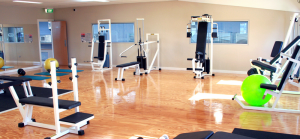It can sometimes be the case that sufficient heating and cooling systems are installed into university residences, sooner than they are installed into lecture halls and smaller university classrooms.
Considering the increasing evidence that temperature affects learning; this is clearly a downfall of universities across the UK. Not only can heat affect learners, but the teachers too can struggle in hot conditions also. So if both student and teacher are struggling, then the summer months could become significantly less productive in the progression of students across the country - this is also the case in winter when conditions become too cold.
Why do lecture halls need cooling?
In particular it is important to have some kind of cooling system in university lecture halls. With the average capacity of a university lecture hall being in the hundreds, there can easily be an increase in temperature in these rooms.
Computer and electrical equipment is also known to raise the atmospheric temperature, and often students and lecturers will use personal computers throughout the teaching session.
As well as these factors, many of the universities across the UK are older buildings, known for lack of ventilation but not known for being airy. Therefore many of these older buildings could be in the need for air conditioning to provide the comfortable temperatures required.
What impact does excessive heat in lecture halls have?
As set out in our previous post, heat has an effect on learning. In 2005 a paper called ‘ The Effect of Temperature on Memory’ was published. In the paper the results demonstrated that significantly high temperatures have a significant impact on the attention span during a learning process.
As well as an impaired attention span, the results of a different test showed that heat would lead to a decreased retention of new facts as well. In fact, not only was it more difficult for the subjects to remember the new material, there were some examples of new information being completely forgotten.
So in hot temperatures it is harder to acquire new information, and once acquired, it is harder to retain.
It has been suggested that the reason for the decreased capacity to learn in hot conditions is due to the reflex reaction of the body to keep us cool. As humans we have an optimal body temperature of 37 degrees. When the atmospheric temperature causes our body temperature go above this, then the brain triggers a set of reflex reactions in order for us to become cooler, such as sweating. It has been supposed that with the brain function being used to keep us cooler, there is less capacity for the brain to learn and retain new information in the way it does when it is not going through these processes.
Constant interruption of learning process.
Humid conditions are often more tiring. As the body works to cool itself excessive energy is used, and so within these conditions students can often feel tired and lethargic, therefore impacting on their concentration levels in the lecture hall.
It is not only students who are affected by the heat, of course. Teachers and lecturers too have reported differences in their performance according to the temperature of the surroundings in which they teach.
In anecdotal evidence outlined in the NASUWT The Teachers’ Union’s report ‘Campaign on excessive temperatures in the classroom ’ teachers not only mentioned the affect of heat on students, but also on their own performance. In this report teachers discussed excessive temperatures and personal performance, citing personal lack of concentration and embarrassment, and difficulty at being at the front of the classroom, talking and teaching others. It is true that on a hotter day, many people prefer to be more sedentary, could this have effect on the vigour and quality of the teaching at UK universities?
In short, having an effective temperature control system can impact the comfort of lecturers and students alike in universities across the country. It is not a surprise to understand that when students and lecturers are more comfortable in their surroundings, they are in a better frame of mind to teach and learn. It is more important than you may think to have lecture halls at an optimal learning temperature.
If you would like experts to install reliable and effective air conditioning to your University lecture halls, or service maintain existing systems, get in touch with Oxford Air Conditioning today.
Call 01235 524411 or contact us online.


